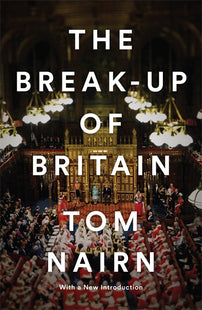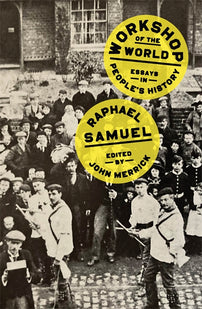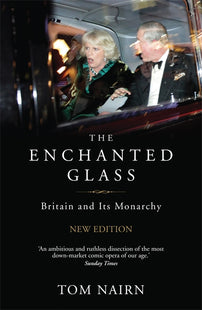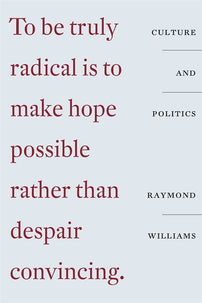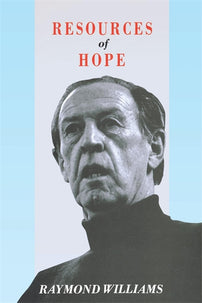Anti-Woke Druids and Radical Bards
What links Welsh 18th century romantic Druid-Bards, gathering around a circle of pebbles in North London, and the contemporary online right?

As the sun rose on the Summer Solstice of 1792, the Druid-Bards gathered in North London, at the summit of Primrose Hill. Led by Edward Williams, a Welsh stonemason and poet better known by his bardic name Iolo Morganwg, they enacted a series of supposedly ancient Celtic rituals — actually recent inventions, products of Iolo’s febrile historical imagination, helped along by his self-medication with hallucinatory quantities of laudanum. While Iolo’s fabricated ceremonies technically called for a stone circle, given the absence of megaliths in eighteenth-century Camden, he made do instead with a circle of pebbles.
Despite these limitations, Iolo’s purpose was deadly serious, and closely linked to the radical politics he espoused in the wake of the French Revolution. From within his ceremonial circle, Iolo asserted that Britain was ruled by ‘Tyrants’. Conversely, the armies of revolutionary France carried the flame of liberty ‘in ev’ry vein’. Chattel slavery, he said, was an abomination which demanded divine retribution. The name he chose for this eccentrically subversive institution had roots in medieval Welsh, but was drastically repurposed in Iolo’s neo-Celtic vision: this was the first of many Celtic revivalist gatherings to go by the name of Gorsedd.
This summer, in 2024, the sun has risen on a rather different Gorsedd. In a widely shared social-media thread detailing the results of a recent libel case, Nina Power — former academic philosopher and editor of the online magazine Compact — was confirmed as owner of the now-defunct Twitter account ‘@gorsedd6’. Under a profile picture of bards dressed in the ‘unicoloured robe of sky-blue’ demanded by Iolo’s ceremonies, Power posted esoteric images, literary quotations, angry denunciations of the so-called ‘gender/trans cult’, as well as a doctored photograph of Judith Butler, portraying this queer Jewish philosopher as a rainbow-painted lizard-person. Power’s Gorsedd account also reposted a piece she co-wrote anonymously for the far-right blog Parallax Optics: this featured more anti-trans invective, and appeared alongside an article on ‘race-realism’ which came to the conclusion that ‘sub-Saharans…just aren’t very smart’. Compact has since accepted Power’s resignation as editor, given this and the arguably more damaging release of her ‘ironic and humorous’ WhatsApp messages about Mein Kampf. Power, for her part, remains unapologetic: she’s gone out of her way to defend Parallax Optics as being ‘in no way “neo-Nazi”’, despite a more recent article on the site which encircles the names of Jewish people and supposedly Jewish concepts within antisemitic triple-brackets.
As someone currently finishing a book about Iolo Morganwg and his fellow Welsh revivalists, the development has been difficult to ignore. Iolo’s reputation has gone through various transformations over the years, but internet poisoned alt-right crypto-fascism is not a context that’s reared its head before within academic Iolo studies. Instead, Iolo has increasingly been touted as Wales’s premier labouring-class radical, his combination of revolutionary politics, cultural nationalism, and passionate anti-slavery making him particularly appealing to sections of the Welsh left.
***
Born in 1747 in the Vale of Glamorgan, Iolo Morganwg was the son of a stonemason, and he too learned his father’s trade. This work put him in the educated class of artisans and farmers who did much to maintain Welsh literary culture, and his travels through England as a journeyman mason led him to an expatriate network of London Welsh revivalists, busy retooling Welsh identity for the age of revolution. It was in this context that Iolo launched onto the wider cultural scene, reinventing himself as a Welsh equivalent of Robert Burns for the English literary market, whilst claiming to be one of the last representatives of an ancient bardic order. His 1792 Gorsedd ceremonies were simultaneously an advertising stunt for this new poetic venture, an attempt to provide peripheral Wales with some kind of cultural infrastructure, and a projection of radical energy into the depths of Celtic tradition. The veil of druidic history also served to distract loyalist reactionaries, who at times chose to overlook the political connotations of Iolo’s Gorsedd, joining with him in ‘perfect equality’ to proclaim ‘the Truth Against the World’. Through this historical sleight of hand, Iolo managed to bake a degree of subversion into the movement for Welsh cultural revival, which otherwise failed to sustain the fleeting politicisation it experienced after the fall of the Bastille.
[book-strip index="1"]
Despite his radical intent, the political flexibility of Iolo’s legacy is unsurprising. All of his most significant cultural contributions, including the Gorsedd, took the form of historical forgeries, ascribed not to himself, but to a vast imaginary cast of authors including ancient bards, medieval chroniclers, and seventeenth-century Welsh satirists. Many of these forgeries ended up in influential published collections of medieval Welsh literature, and weren’t fully exposed by scholars until the twentieth century.
When it came to inventing traditions, Iolo was a virtuoso, his work even serving as one of the case studies in Eric Hobsbawm and Terence Ranger’s Invention of Tradition, which introduced this term to the historical lexicon. And if the reception of one’s writing depends on a claim that it was produced in ages past, the actual political context of its creation is likely to be overlooked—even if you insert the language of revolutionary France into your druidic ceremonies, or smuggle references to radical parliamentary reform into your bardic triads.

Iolo’s ideas were mixed, without attribution, into the broiling cauldron of nineteenth century ethno-historical fantasy. They then turn up in some of the unlikeliest of places. Take, for instance, the correspondence of one Karl Marx: in letters to Engels written in the 1860s and 70s detailing his research into Celtic political history, Marx highlighted books containing Iolo’s fabricated tenets as evidence that the medieval Welsh were ‘entirely communist’, and ‘born dialecticians’, who allowed ‘voting rights for women in the tribal assembly’. Iolo’s actual opinions about women in politics were not so enlightened, but here at least there was genuine connection between the levelling radicalism preached by Iolo and the excitement he awoke in Marx — who was then living, incidentally, just down the road from Primrose Hill.
But Iolo’s inheritors can also be found amongst those whom Pankaj Mishra has called the ‘ethnic-racial chauvinists’ of the early twentieth century, who offered ‘visions to uprooted peoples of a rooted organic society in which hierarchies and values had been stable’. One of these was the Cornish revivalist and nationalist Henry Jenner, who in 1928 became a founding member of the Cornish Gorsedd (Gorseth Kernow)—a successor group to the Iolo-inspired Gorsedd that still gathers annually at the Welsh National Eisteddfod. A right wing neo-Jacobite who supported the cause of the deposed Stuart monarchs, Jenner took pride in believing that among the ethnically variegated peoples of Britain, the Cornish were ‘probably of the most unmixed Aryan or white race’. Incidentally, it was a painting of Jenner’s ‘Gorseth’ which served as the profile picture for Nina Power’s Twitter account.
It's difficult to tell whether Iolo would have been amused or offended by a Cornish arch-monarchist adapting his ceremonies, which in the 1790s had involved adulatory verses to the giant ‘Rhitta Gawr’, a mythic serial regicide who ‘destroyed so many despots, that he made himself a robe with their beards’. But it is equally misleading to try to cordon off ‘correct’ leftist takes on the Gorsedd from its more reactionary appropriations. As Mary-Ann Constantine has argued, Iolo could not always comfortably synthesise his attachments to universal radical justice and particularised cultural tradition. In opposition to less nationally-minded Welsh radicals, Iolo insisted that ‘[he] who loves not his own parent will never, can never love man. who loves not his native home will never in a proper sense be a Citizen of the World’. He felt the need to ground his internationalist radicalism in the familial subordination and natural patriotism of the Burkean conservative—no matter that the anti-revolutionary Burke was himself, according to Iolo, a tyrannical ‘dolt’.
[book-strip index="2"]
Iolo’s historical forgeries can be a similarly mixed bag, embodying on the one hand radical democratic utopianism, and on the other political exclusion sanctified by appeals to nature and tradition. Take the pseudo-historical legal ‘triads’ that so fascinated Marx: working from Iolo’s patchwork of genuine medieval legal language and contemporary political radicalism, interpreters discerned a primeval British polity absent from actual history, in which democratic assemblies influenced every layer of government, and land and suffrage were granted to ‘pob Cymro cynhwynawl [each native Welsh person]’. Excluded from these rights, however, were illegitimate children and foreigners, whose descendants would not gain such privileges until several generations of intermarriage with natives. These draconian exclusions were justified as safeguards to the nation’s morality and security, ideals held to be more important than the political participation of all.
These triads’ assertion that Britons had restricted ‘ymordderchu llwyn a pherth [fornication in bush and brake]’ since time immemorial shows the limits of interpreting Iolo’s Gorsedd as a prefiguration of 60s counterculture. His often misunderstood drug-use, for instance, began as an attempt to treat chronic asthma, and his morality was shaped by a fervent attachment to Unitarian Christianity. And, as much as I’m fond of the Gramscian ‘organic intellectual’ Iolo constructed in Gwyn Alf Williams’s Marxist-Nationalist histories of Wales, it is not the only version of Iolo on offer. His bardo-Druidic radicalism maps imperfectly onto modern left/right divides.
***
Which brings us back to Nina Power’s reactionary tweeting as “@gorsedd6”. Despite defining the word ‘Gorsedd’ semi-accurately as ‘a Welsh bardic choir’, Power does not profess any great attachment to Iolo’s legacy. Her choice, she said, was ‘just a sort of random name’, used online to protect anonymity. But though her engagement with Iolo appears limited, his mixture of popular libertarianism and esoteric conservatism is not a million miles away from the politics she herself has tried to claim.
Power has long since moved away from her once-fêted position on the feminist left, advocating now a supposedly unaligned stance on the post-liberal post-left. Her more recent views have combined anti-capitalism, conservative communitarianism, and not-quite-paganism, all mixed together with vehement opposition to ‘liberal’ identity politics. Beyond the contemporary anti-wokeism, much of this stance is redolent of Iolo. And in the ‘free speech’ media ecology of Power’s Compact and its smugly contrarian cousin UnHerd, practitioners of Iolo-influenced Druidry have staked out similar positions.
Another writer published by Compact is Rhyd Wildermuth, a Druid and ‘Autonomous Marxist’ for whom ‘Woke Ideology and other identitarianisms are symptoms of our alienation from the sacred’. There is not much of Iolo’s robe-clad vision in Wildermuth’s Druidic persona, but the Welshman does get a mention on the latter’s blog, and Wildermuth’s Compact published case against leftist family abolition shares much with Iolo’s commitment to the family structure. Then there is John Michael Greer, a former Grand Archdruid and self-identified ‘Burkean conservative’, whose publications have helped to promote Iolo’s legacy within contemporary Druidry. A regular contributor at UnHerd, Greer expounds a magical-ecological-economic sympathy for Trumpism, which according to Greer succeeded in 2016 in part because of the ‘repression of American masculinity’ by ‘woke ideologues’.
[book-strip index="3"]
It would be a mistake to erase the significant differences between Power, Wildermuth and Greer, but they do share common features beyond simply an association with Iolo—not least a conspiratorial animus against so-called ‘gender ideology’. Wildermuth, for instance, paranoically characterises ‘gender’ as ‘one of the bludgeons the neoliberal order is using now to dismiss the material concerns of the poor’ (here eliding evidence of the higher rates of poverty and homelessness among trans people). And, with echoes of Iolo, all three base their more-or-less Druidic rejection of ‘woke’ modernity on an appeal to nature.
Nature with a capital-N was at the heart of Iolo’s Gorsedd—Primrose Hill, for instance, was selected as a Gorsedd venue thanks to its openness to the elements. As he wrote in one of his bardic triads: ‘Three things well understood will give Peace: the tendencies of Nature; the claims of Justice; and the voice of Truth’. Iolo thus appropriated the old Classical-primitivist association of Druidism with nature, but retooled it for his own radical ends, portraying the tyrannical, commercial, enslaving monarchies of Europe as the enemies of natural order. This spiritual and political appeal is also shared by Iolo’s inheritors: Wildermuth evokes ‘our disconnection from nature’ as a species of Marxian alienation, Greer’s eco-conservatism is founded on a sense that ‘Nature chuckles at our incompetence’, and Power has spoken emotionally of the role nature played in her recovery from an alcoholic breakdown. Power insists that ‘just because the Nazis liked nature doesn't mean nature is Nazi’, which, of course, is true. But as Adorno observed, Nazi attacks on minorities were based on the state’s elevation of a ‘pseudo-natural criterion such as the race, which seems to be inescapable and can therefore be applied…mercilessly’. Such mercilessness (then as now) also falls upon those who reject the pseudo-natural dictates of authoritarian gender.
In Adorno’s writings on Wagner—a classic case study in pagan-fancying proto-fascism—he identified the central issue at stake. When in ‘the social process of life “ossified relationships” form a second nature’, the reactionary imagination ‘gazes transfixed, mistaking [this second nature] for the first’ kind. This is why Iolo Morganwg’s primeval British democracy still reflected the sexual mores of a nineteenth-century Christian. It also helps explain why appeals to gendered ‘reality’ and the ‘natural process of puberty’ structure Power’s attacks on trans people’s campaigns for accessible healthcare, labour rights, and social acceptance. For Power, these campaigns represent an ideological ‘smashing of the body’ and ‘the destruction…of sexual difference’— claims she made in a speech at the National Conservatism conference in 2023. This increasingly radicalised transphobia, founded on pseudo-natural conservatism, is clearly implicated in Power’s decision to write for a ‘NeoReactionary’ site full of rancid racism.
***
Here, I must make an admission. In researching this piece, I’ve been combing through the sordid details of countless social media scandals while reading repeated neo-Druidic exhortations to get outside and ‘touch grass’. In the end, the latter suggestion became undeniably alluring. Abandoning my computer, I went out to the nearest patch of what seemed like nature, standing ‘in the eye of the sun and the face of the light’ like one of Iolo’s Druid-Bards. I’m not saying it was, precisely, a Druidic experience, but it definitely made me feel better—and it does similar things for many modern Druids.
So by all means greet the sunrise, go out into the forest, pay homage to the stones. I’d also, on behalf of the Welsh-speaking community, love to invite more of you to join us in using it. The language and literature through which Iolo channelled his revolutionary imagination is not one I want to see snuffed out by the homogenising forces of global capital. Something about Iolo's story is indisputably attractive — an erratic agent of chaos from the Welsh labouring classes, he saw visions of the future in an imagined past, and dragged them determinedly into his present. Anyone who, like Iolo, forced local magistrates to monitor seditious gatherings of bards on Glamorganshire hillsides deserves some respect. But if Iolo’s fabricated yet enduring Gorsedd teaches us anything, it’s that nature and tradition can become entirely what we make of them. Unless we keep that in mind, radical appreciation of the natural and traditional can denature rather quickly.
Rhys Kaminski-Jones is a Research Fellow at the University of Wales Centre for Advanced Welsh and Celtic Studies. His book on Welsh Revivalism, Britishness, and Empire is forthcoming from Boydell & Brewer in 2025. Rhys is also a member of the Anti-Fascist Celtic Studies group Carantes, whose mailing-list can be joined by emailing caranteswg@proton.me
Thanks to Alex Heffron and Steph White for their invaluable help with this piece, and to Luke Turner for providing additional documents.

